World Bank Helps Give Bangladesh’s Poor Children a Chance at Education
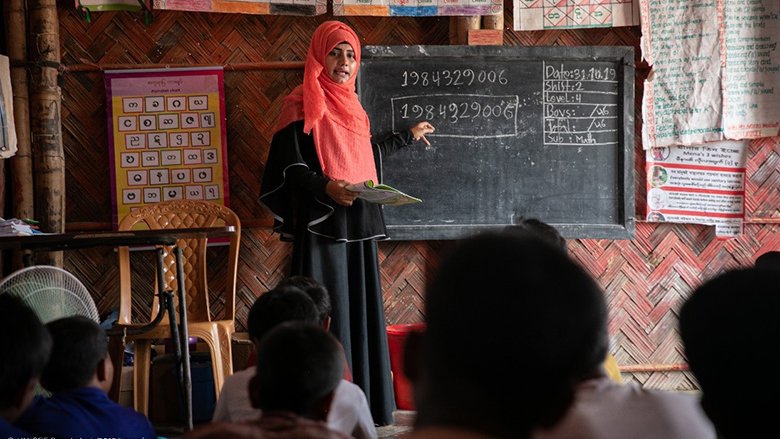
Around 18,000 rural Learning Center teachers have received training, including 3,000 teachers in Cox’s Bazar for ensuring quality education inside the camps. Photo courtesy: UNICEF
By the mid-2010s, although enrollment and gender parity rates improved at both primary and secondary levels, Bangladesh still faced a persistently high adult functional illiteracy rate at over 50 percent and low education completion rates. Around five million children aged six to 13 remained out of school mostly in under-served areas and urban slums. In addition, from 2017, following an ethnic conflict in Myanmar, about a million displaced Rohingya people moved to camps in Bangladesh’s southeastern Cox’s Bazar district, more than 350,000 of them children requiring urgent educational and psychosocial support. The influx created further pressure on the already stretched local economy and social services, resulting in a further increase in school dropout rates and disengaged youth, especially girls and young women, in the hosting community.
Bangladesh’s goal of universal primary enrolment is hindered by persistent inequity of access, completion rates, learning outcomes, and transition to upper grades and to secondary education. ROSC II, which began implementation in 2013, provided children at high risk of dropout with programs built on experience from both public schools and NGO-based innovations that blend formal and non-formal education. ROSC II created new opportunities for children in targeted deprived communities to complete Grade 5 and pursue secondary education. Since 2017, ROSC II has facilitated the creation of innovative learning centers (LCs) providing non-formal education through Government-NGO-UN collaboration and financial support from the IDA 19 Sub-Window for Refugees and Host Communities. Throughout the project, the Government has created robust monitoring and certification systems that have helped to scale and sustain such public-NGO-UN and community partnerships.
According to the ROCS II Theory of Change, the number of out-of-school children, especially girls and the disadvantaged, who have access to education would be increased by (i) providing grants to establish LCs (including in urban slums) and conditional allowances given to students who attend; (ii) enhancing education quality and grade retention through teacher development and classroom support; and (iii) strengthening management, monitoring and evaluation, learning assessments, and certification. In the long-term, this would lead to improved completion rates and improved life opportunities, allowing people to lead productive lives and escape poverty.
The principal results have been:
- Access to Primary Education: ROSCII provided access to second-chance education to 687,556 out of school children, about 49% of whom were female, in 148 sub-districts in around 20,000 community-managed LCs. About 87% of the supported children were categorized as disadvantaged. Nearly 48,000 urban slum children received primary education following the accelerated learning model (2013 to 2019).
- Support for Rohingya children: About 112,000 Rohingya children were enrolled in 1,331 LCs inside the camps. Around 300,000 children received psychosocial support (2017-2021).
- Quality of Education: A total of 18,000 rural LC teachers received training and refreshers (2013-2018). Some 3,000 teachers in Cox’s Bazar received training through a UNICEF module in Cox’s Bazar for ensuring quality education in the LCs inside the camps (2019-2020). The average grade retention rate was improved to as high as 83% and the pass rate in the completion exam was 84%.
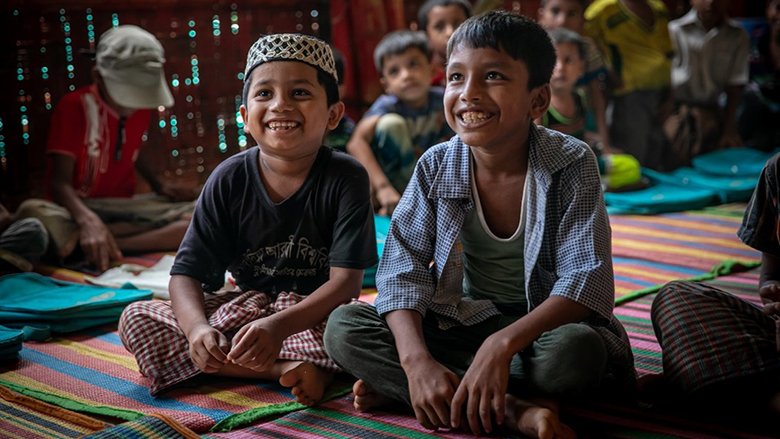
Bank Group Contribution
Original financing (Board Approval in October 2012) was US$130 million IDA Credit. An Additional Financing (AF) of US$25.0 million was added from the IDA-18 Regional Sub-Window for Refugees for providing educational support to the Rohingya children (September 2018). A second AF of US$6.5 million was added to cover exchange rate losses (December 2020).
The United States Agency for International Development (USAID) provided a US$2.5 million trust fund (Bank Executed) to support the design of the ROSC II pilots and evidence-based impact evaluations. The Government of Canada co-financed US$4.1 million for Rohingya Children’s education by buying down the credit portion of the grant from the IDA Refugee Window.
The Project’s success depended on the cooperation of several NGOs, United Nations Agencies and Development Partners. LCs in rural areas were established with the support of over 70 local NGOs who helped establish community committees and manage the LCs, and provided training to teachers and SMC members. Save the Children, an international NGO, worked as a specialized agency to help design and implement the Urban Slum and Vocational Training components. UNICEF was responsible for the implementation of the Rohingya education component through eight partner NGOs. The Institute of Education and Research of Dhaka University designed and monitored the training programs. USAID and Canada co-financed the design and activities.
Moving Forward
ROSC II established a successful system for reaching vulnerable, out-of-school children. The program’s sustainability was the subject of continuous attention during its implementation and remains a high priority for the Government’s goal of universal basic education set forth in its National Education Policy. To ensure the mainstreaming of the program’s approach, the activities of ROSC II, including the innovative approach, are being replicated by the Government’s Primary Education Development Program 4 (PEDP4), which is co-financed by an SDR 484.2 million (US$700 million equivalent) IDA Credit and by resources provided by nine other Development Partners.
Beneficiaries
Nahid Sarker, 15, lives with his parents in a village in North-Western Bangladesh (Natore District). In 2014, Nahid enrolled in an Ananda School supported by ROSC II. After completing five years’ education Nahid participated in the PEC Examination in 2018, constantly struggling against adversities and achieving a 4.08 GPA, a first step toward his dream of becoming a pilot. The ROSC II project provided free books, a school bag, a uniform, and a stipend. He is now in grade VII, continuing his studies at Kuripakia Fazil Madrasha in the Nahore district. “My dream is to educate myself, escape poverty and put a smile on my parents’ faces,” he said.
This site uses cookies to optimize functionality and give you the best possible experience. If you continue to navigate this website beyond this page, cookies will be placed on your browser. To learn more about cookies, click here .

- High contrast
- Representative
- Meena and UNICEF
- National Ambassadors
- MEDIA CENTRE

Search UNICEF
Home education project reaches children in remote parts of bangladesh, unicef delivers pioneering initiative to provide home education in a remote part of bangladesh.

- Available in:
A UNICEF-supported home learning initiative in the remote south-eastern Chittagong Hill Tracts (CHT) of Bangladesh has made significant progress in offsetting the effects of a country-wide education lockdown implemented because of COVID-19.
Normally early learning and pre-school activities in the area, predominantly inhabited by a wide variety of indigenous people groups, are carried out in one of about 4,300 Community – or Para – Centres that are located in the three districts that comprise the CHT.
But the arrival of the COVID-19 has meant that these centres have been indefinitely closed, leaving children in the CHT no alternative but to study at home mostly without electricity and without the benefits of modern technology such as TV and the Internet. They are missing out on holistic development that is an essential part of their pre-school preparations.
Sneha Chakma–from Rangamati district –is one of 1,500 children aged between three and five in the CHT who have recently been supplied with a home-based learning pack.
Sneha said she would prefer to be at the Para Centre with her friends and teachers.
“But at least we’re now able to draw, read, write and play more at home,” she added.
The learning packs contain two months’ worth of curriculum that provide advice to parents on how to engage children at home with meaningful learning activities.
“The curriculum has been adapted and modified from the existing Para Centres’ module which is already familiar to children,” said UNICEF-Chittagong Field Office Education Officer Afroza Yasmin .
“The content is simple and geared specifically towards the children. It can be used at home by parents with minimum support from the Para Centres.
“The learning calendar, which also includes some basic learning materials, helps children and their families cope with COVID-19 by having a special focus on the prevention of infection.”

Disrupted learning activities
The learning-at-home package is especially designed for children in hard-to-reach areas, Ms Yasmin said, prioritizing a daily routine of children’s activities, including rhymes and songs, which are designed to aid learning at home.
The aim is ultimately to expand the programme to the 53,000 boys and girls who live in the three CHT districts with the support from Government and other partners.
As UNICEF Bangladesh Chittagong Chief of Field Office Madhuri Banerjee explains, the initiative fully conforms with the UN’s Sustainable Development Goals because of its emphasis on equal access to good quality early childhood education and development.
“Our aim is to support the most vulnerable children so that they are ready for lifelong learning in future,” Ms Banerjee said. “We are also advocating for strengthening of early childhood education for all children in the CHT both in an emergency and a non-emergency context.”
So far children and parents who have received the package are enthusiastic about it, said Sustainable Social Services (SSS) Project Manager Jan E Alam. SSS are implementing the project with support from UNICEF. Both organisations share the same objective in wanting to keep any disruption to pre-school activities to a minimum.
“From now onwards home-based learning will definitely play an important role in children’s continuous holistic development,” he said.
Parents such as father and mother Romel and Shaymoli Chakma have also welcomed the initiative when questioned by researchers on behalf of UNICEF.

“We were very happy and proud to get the chance to support our child at home,” said Romel. “We never thought we would be so involved in her learning."
“But it hasn’t been easy for us during the lockdown. We are earning less than before. We are socially distanced and more isolated.
“If the Centres remain closed, we fear it will severely affect our child’s future. She won’t be able to get enrolled in Grade One next year.”
‘Not afraid of the virus’
Teachers meanwhile such as Debo Lokhi Chakma, 27, are hailing the success of the programme.
“While it was a bit difficult in the beginning to implement, parents have responded positively when they see that it is so helpful for their children,” she said.
Ms Chakma added that she is taking all the necessary precautions that she knows of.
“We are like a big family,” she said, “and I take good precautions before I go close to the family. I maintain physical distancing, wear a mask and wash my hands frequently.
“This initiative may not be perfect, but it covers the essentials of reading, writing and arithmetic and at least goes some way towards ensuring that children are engaged in learning.
“At the same time it enables us teachers to check on their progress every week.”
Related topics
More to explore, children are at high risk amid countrywide heatwave in bangladesh, from child labour to education.
Rohingya refugee children find education and protection at UNICEF-supported multi-purpose centres¬
A year of hope and empowerment for children in Dhaka South
AACT and UNICEF helps ensure to bring back out-of-school children
UNICEF: Against the odds, children begin the new school year in Rohingya refugee camps
Education in Bangladesh
- Transforming education
Result story
- Civil society
- KIX support
- Blogs and news

Partner since: 2015
Total grant support: US$180,190,563
Grant eligibility:
- System capacity
- System transformation
Education sector plan
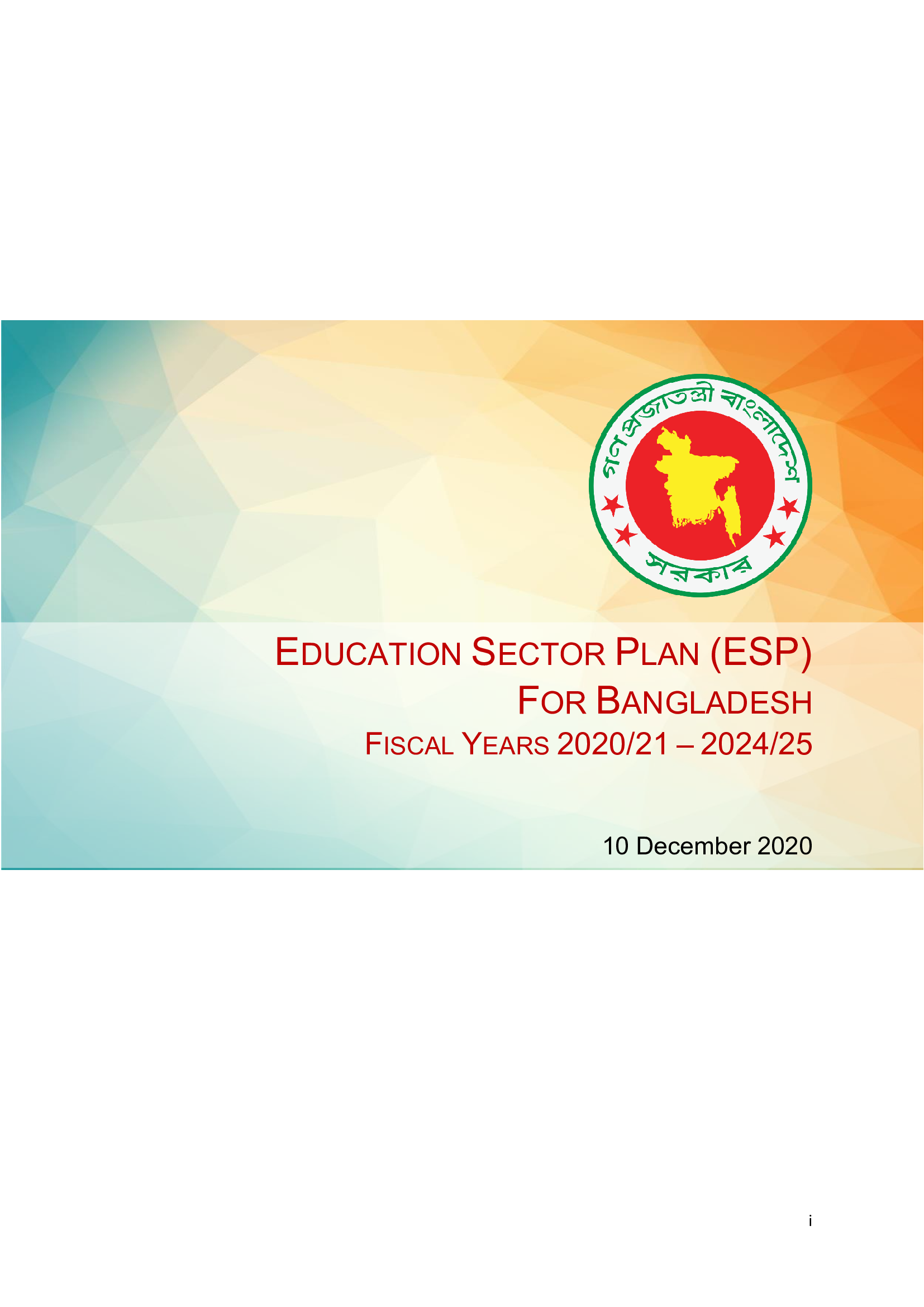
Objective: Contribute to better planning, coordination and implementation of the education programs in alignment with national aspirations
Other key documents
Coordinating agency: British High Commission in Bangladesh
GPE Team lead: Daisuke Kanazawa
Transforming education in Bangladesh
Bangladesh’s education system caters to about 40 million students. Learning is offered through both formal and non-formal channels.
The 2020 Education sector analysis reports that the country has achieved near-universal primary education enrollment with gender parity. The net enrollment rate was 98% in 2018.
Since the influx of refugees from Myanmar, the government has led the humanitarian response in Cox’s Bazar. The district historically had some of the lowest primary education indicators in the country. Initially, school attendance rates fell, especially for girls, and dropout rates increased across the district.
By 2018, enrollment had significantly improved in the district, to a net enrollment rate of 94.6% compared to the national average 98%. However, only 60% of children and youth aged 12 to 24 reported having completed primary school in Teknaf and 75% in Ukhiya.
Due to government restrictions and policy directives, Rohingya children are only allowed informal education, and it must adhere to the Guideline for Informal Education Program.
Of all Rohingya refugees, 51% are children under the age of 18. Despite significant progress over the last two years, more than 30% of Rohingya children and youth aged 3 to 24 still require access to education . 83% of adolescents aged 15 to 18 lack access to educational or skills development activities.

Against the odds: How Bangladesh strengthened its education system during COVID-19
- GPE funding has supported the government of Bangladesh to respond to the urgent need for distance learning during the COVID-19 pandemic.
- Almost 3,000 teachers were trained on remedial education, distance learning strategies, and formative and summative assessment practices.
- Thanks to the GPE-funded program, almost 20,000 primary schools in the most disadvantaged areas were equipped with the knowledge and resources to safely reopen.
(data as of May 28, 2024)
Type: Accelerated funding
Years: 2023 - 2025
Allocation: US$10,780,000
Utilization: US$3,420,595
Grant agent: UNICEF
Sustain and accelerate current efforts of the Government of Bangladesh and education partners under phase II of the project ‘Reaching Out-of-School Children’ to ensure forcibly displaced Myanmar nationals and host community children affected by the humanitarian crisis in Cox’s Bazar district have access to quality education and skills development opportunities through alternative and remote-based learning platforms.
- Application
- Program document
Type: System capacity
Years: 2023 - 2024
Allocation: US$484,848
Utilization: US$15,549
Type: Program implementation
Years: 2022 - 2024
Allocation: US$53,900,000
Utilization: US$36,376,392
Grant agent: WB
Strengthen links between primary and junior secondary education, including technical and vocational education, and primary and junior secondary level madrasah.
Civil society engagement
As part of its investment in civil society advocacy and social accountability efforts, GPE’s Education Out Loud fund is supporting:
- The Campaign for Popular Education (CAMPE) for the 2020-2023 period. This builds on previous support from the Civil Society Education Fund (CSEF).
- The Institute of Informatics and Development to support national transparency and accountability work in the 2022-2024 period.
- The South Asian Assessment Alliance led by Street Child to mobilize an advocacy alliance across multiple partner countries, including Bangladesh, for the 2021-2023 period.
Knowledge and innovation
- Bangladesh is part of the KIX Europe, Asia and Pacific hub and has a KIX national delegation .
- The Impact of Gender and Inclusive Pedagogies on Students’ Participation and Learning Achievement at Secondary School During the Pandemic and Beyond
- Effectiveness and Scalability of Programs for Children Who Are Out of School and at Risk of Dropping Out in Bangladesh, Bhutan and Nepal
- Using technology to improve literacy in the Global South
- Common-scale assessment of early and foundational math learning across the Global South
- Using data for improving education equity and inclusion – MICS-EAGLE
Latest blogs and news
December 27, 2023 Our top 5 education result stories of 2023 Read our top stories of change of 2023.
December 03, 2023 Changing mindsets: Education for Rohingya girls in Bangladesh Read how GPE is supporting Bangladesh through an accelerated funding grant to ensure that girls have safe and supportive learning spaces, teachers are adequately trained and the Rohingya community recognizes the...
July 18, 2023 Let’s create a world where every child feels safe: a call to stand against school-related gender-based violence A call from young leaders to build a strong coalition and advocate for safer educational environments for all to end gender-based violence in school.

An official website of the United States government
Here's how you know
The .gov means it’s official. Federal government websites often end in .gov or .mil. Before sharing sensitive information, make sure you’re on a federal government site.
The site is secure. A lock ( ) or https:// ensures that you are connecting to the official website and that any information you provide is encrypted and transmitted securely.
Keyboard Navigation
- Agriculture and Food Security
- Anti-Corruption
- Conflict Prevention and Stabilization
- Democracy, Human Rights, and Governance
- Economic Growth and Trade
- Environment, Energy, and Infrastructure
- Gender Equality and Women's Empowerment
- Global Health
- Humanitarian Assistance
- Innovation, Technology, and Research
- Water and Sanitation
- Burkina Faso
- Central Africa Regional
- Central African Republic
- Côte d’Ivoire
- Democratic Republic of the Congo
- East Africa Regional
- Power Africa
- Republic of the Congo
- Sahel Regional
- Sierra Leone
- South Africa
- South Sudan
- Southern Africa Regional
- West Africa Regional
- Afghanistan
- Central Asia Regional
- Indo-Pacific
- Kyrgyz Republic
- Pacific Islands
- Philippines
- Regional Development Mission for Asia
- Timor-Leste
- Turkmenistan
- Bosnia and Herzegovina
- North Macedonia
- Central America and Mexico Regional Program
- Dominican Republic
- Eastern and Southern Caribbean
- El Salvador
- Middle East Regional Platform
- West Bank and Gaza
- Dollars to Results
- Data Resources
- Strategy & Planning
- Budget & Spending
- Performance and Financial Reporting
- FY 2023 Agency Financial Report
- Records and Reports
- Budget Justification
- Our Commitment to Transparency
- Policy and Strategy
- How to Work with USAID
- Find a Funding Opportunity
- Organizations That Work With USAID
- Resources for Partners
- Get involved
- Business Forecast
- Safeguarding and Compliance
- Diversity, Equity, Inclusion, and Accessibility
- Mission, Vision and Values
- News & Information
- Operational Policy (ADS)
- Organization
- Stay Connected
- USAID History
- Video Library
- Coordinators
- Nondiscrimination Notice and Civil Rights
- Collective Bargaining Agreements
- Disabilities Employment Program
- Federal Employee Viewpoint Survey
- Reasonable Accommodations
- Urgent Hiring Needs
- Vacancy Announcements
- Search Search Search
Over the past decade, Bangladesh has made remarkable progress in expanding access to education. With 98 percent of children of primary school age enrolled in school, the country has achieved near universal primary enrollment as well as gender parity in equal access to education. Despite these advances in access, the quality of education remains a challenge, and many children in Bangladesh are not acquiring the foundational skills they need for continued learning. This is particularly true for marginalized groups. Children in crisis-affected areas – including those in host communities impacted by the Rohingya crisis – and children with disabilities are underrepresented and underreported in Bangladesh’s education system. USAID supports the Government of Bangladesh (GOB) at the pre-primary, primary and higher secondary education levels and strengthens development opportunities for youth who are not in education, employment or training.
Reaching Marginalized Children with Quality Education
USAID programs target children living in crisis-affected, marginalized and vulnerable communities with a special focus on girls and children with disabilities. USAID works to build awareness and sensitize communities and schools on ensuring all children’s access to quality education, while strengthening the skills of district education officials, teachers, and school communities to deliver quality education.
Educating Children Beyond the Classroom
In 2005, USAID established Sisimpur , the Bangladesh version of the popular Sesame Street children’s educational TV program. USAID continues to support Sisimpur to produce and air episodes on national TV, providing millions of children across the country with high-quality educational content.
Empowering Youth and Promoting Peace
USAID youth activities build skills and empower out-of-school youth to increase their employability, enabling them to contribute to the economic growth of Bangladesh. Programs also prioritize gender equity and reaching out-of-school youth from marginalized populations, and hard-to-reach areas. USAID education programs also aim to strengthen Bangladeshi youth’s resilience against violent extremism and anti-democratic values.

Overcoming COVID-19 Challenges
The COVID-19 pandemic exacerbated the challenges already facing Bangladesh’s education system. During the height of the pandemic, the GOB focused on ensuring schools implemented COVID-19 safety measures so children, especially those in marginalized communities, could safely return to schools. Schools reopened on September 12, 2021, after 18 months of closure. USAID partnered with UNICEF to support the Bangladesh Bureau of Statistics to measure pandemic learning loss. While the assessment revealed a drop in students’ foundational numerical skills and reconfirmed previously reported poor reading abilities, it also explored potential interventions to address the needs of students after this prolonged absence from classrooms.
- USAID has helped bring 15 consecutive seasons of Sisimpur , Bangladesh’s version of Sesame Street, to millions of Bangladeshi children. In season 15, Sisimpur will introduce viewers to Julia, a four-year-old Muppet who has autism to help promote diversity, equity, and inclusion both in the classroom and in communities.
- In 2022, USAID continued to improve education for children in remote locations across the country through establishing 250 parent-teacher learning forums, distributing learning materials, and establishing 100 classroom-based libraries.
- To align with the Government of Bangladesh’s goal to empower the country’s young people, USAID and other foundations have helped to augment the government’s youth services, including providing vocational skills training.

Bangladesh Menu
- Disaster, Resilience and Humanitarian Assistance
- Environment and Climate Resilience
- Health and Nutrition
- Country Development Cooperation Strategy (2020-2027)
- Press Releases
- Our Stories
Work With Us
- Partnership Opportunities
- Business Opportunities
Government of the People's Republic of Bangladesh College Education Development Project (CEDP)
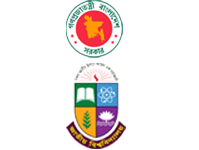
15 August 2023
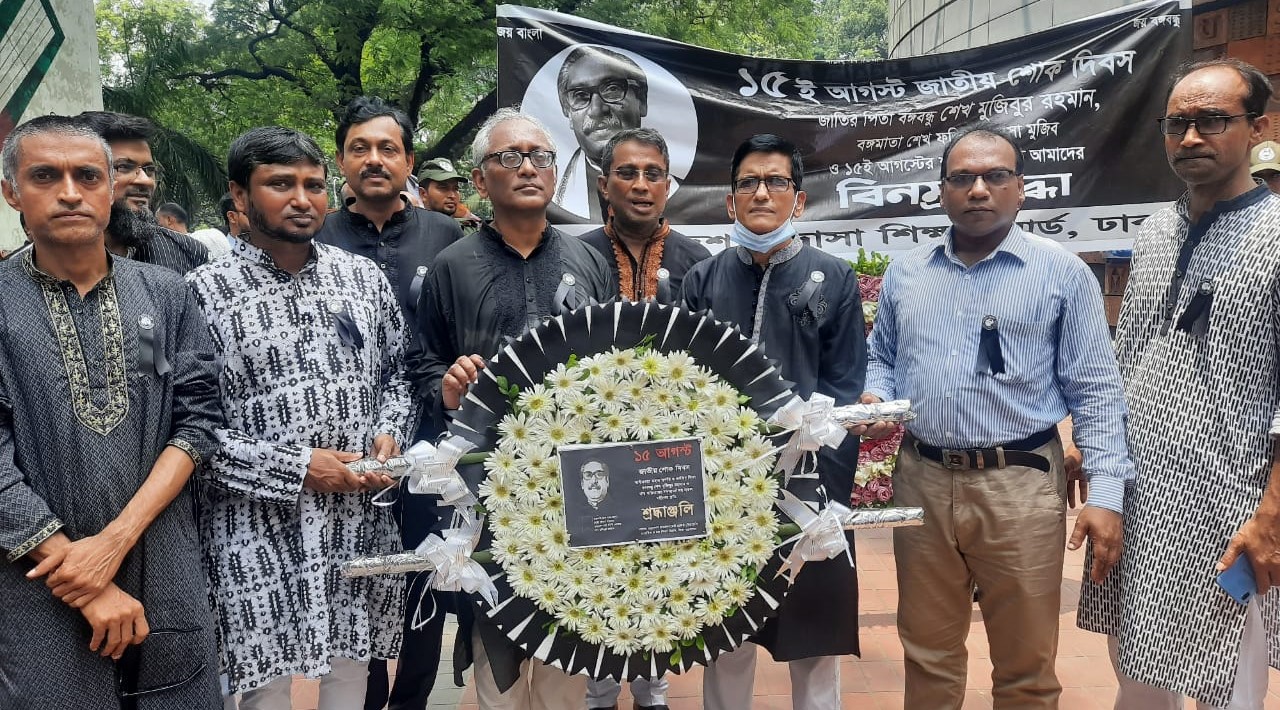
Tracer Studies Questionnaires Finalization – 11 April 2023
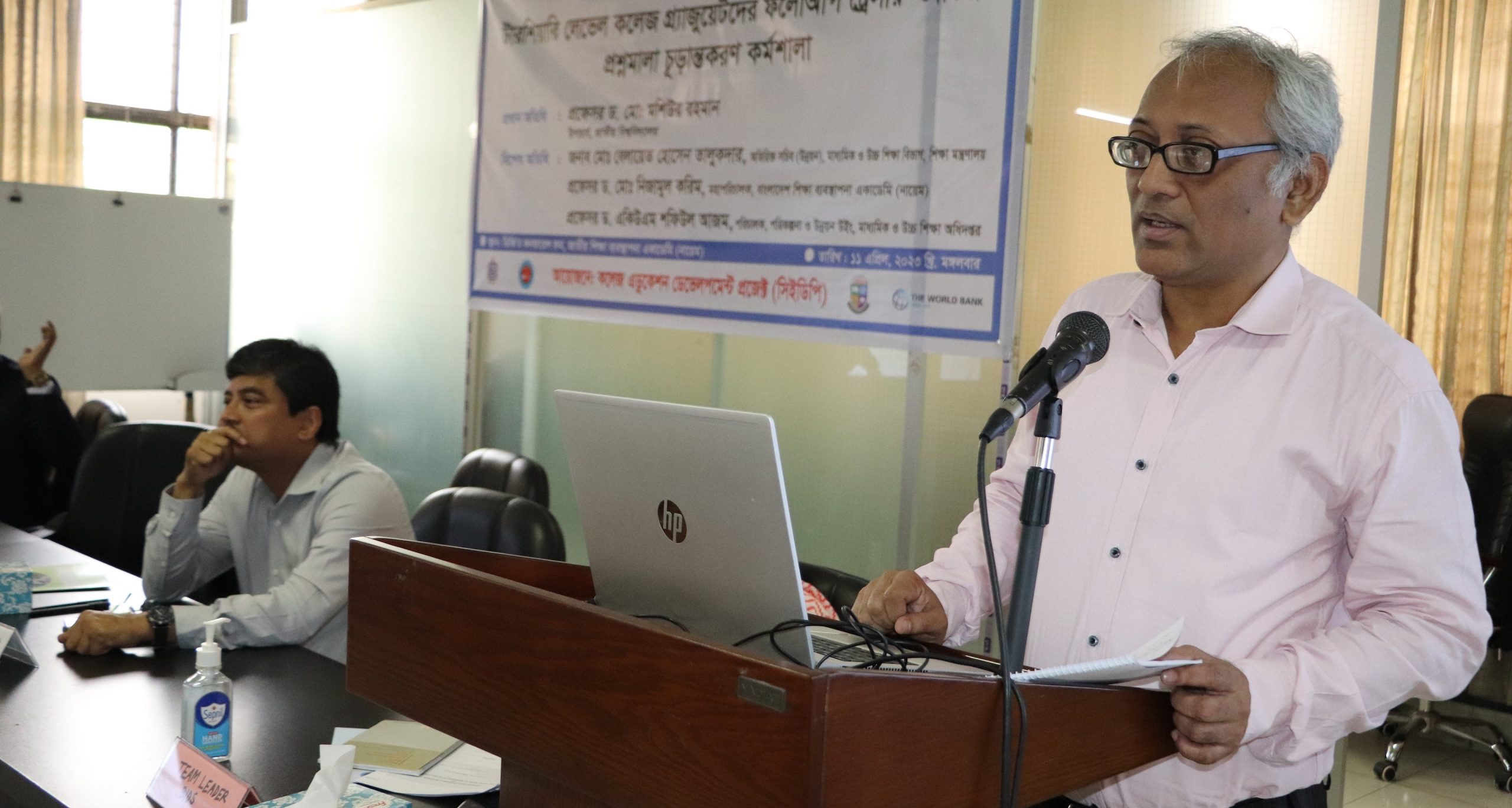
Tracer Studies Questionnaires Finalization – 11 April 2023
College education development project (cedp).
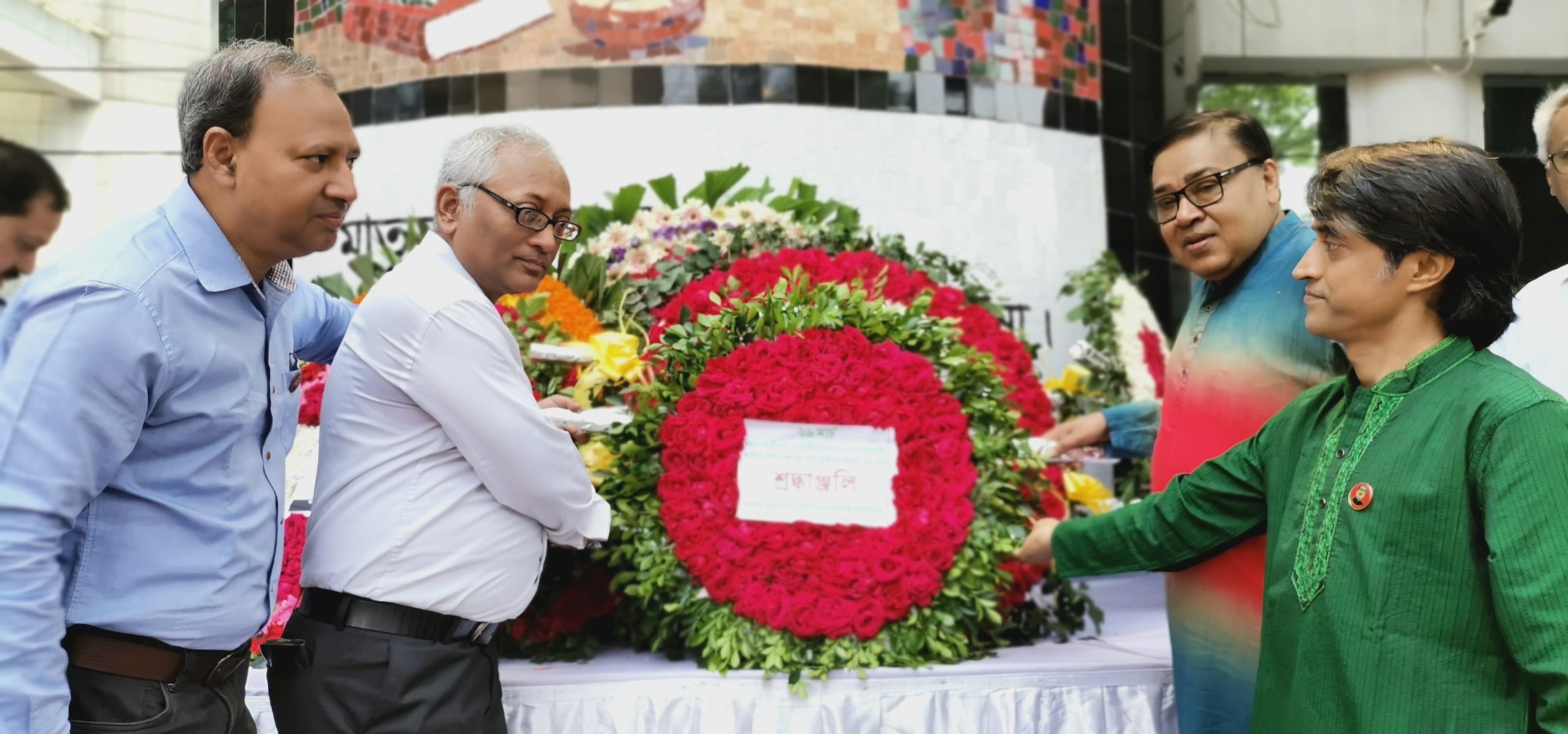
Independence Day, 26 March 2023
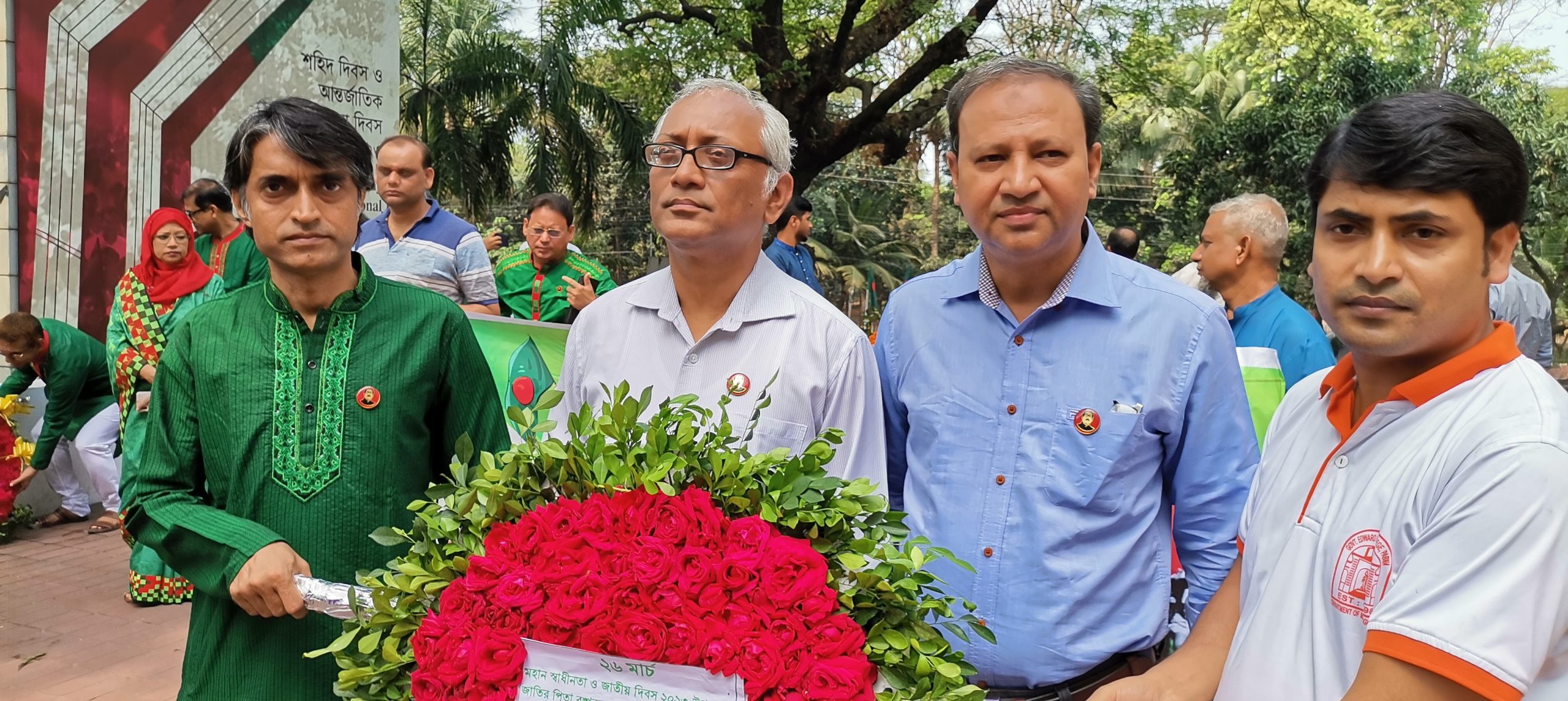
CEDP-banner
- REOI for Consulting Firm for Developing Content of LMS for NU (SD-304) May 23, 2024
- NOC for Passport of T. S. Shamim Siddiky March 24, 2024
- গোপালগঞ্জ সরকারি বঙ্গবন্ধু কলেজে সিইডিপি প্রকল্প উন্নয়ন ও অবদান। February 23, 2024
- CEDP আওতায় প্রশিক্ষণ কোর্সের বিজ্ঞপ্তি February 18, 2024
- Notice for Basic ICT Training for College Teachers (10 Days ) January 10, 2024
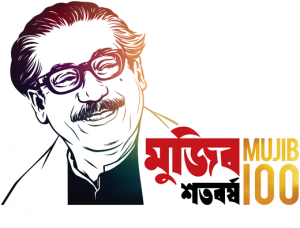
About the Project
Improving skills and productivity are crucial to Bangladesh’s quest to accelerate economic growth and become a middle-income country. However, the current skill levels of the labor force are unlikely to support future market demands. While there is an abundance of low-skilled workers, there is a strong demand for graduates with higher cognitive and non-cognitive skills and job-specific technical skills. This would require improving the quality and relevance of tertiary education so that education institutions are equipped to produce graduates with more market relevant skills.
To meet the human development needs of the country, the College Education Development Project (CEDP) was incepted in 2016. The CEDP aims to strengthen the strategic planning and management capacity of the college education subsector and to improve the teaching and learning environment of participating colleges.The Project specifically focuses on the tertiary college education sector under the National University (NU) which accounts for nearly two-thirds of all tertiary students in around 2,200 government and nongovernment colleges in Bangladesh.
The CEDP is under the Ministry of Education and co-executed by the National University and the University Grants Commission of Bangladesh. Other key partners include Directorate of Secondary and Higher Education (DSHE), Bangladesh Open University (BOU), National Academy for Educational Management (NAEM), University of Nottingham Malaysia Campus (UNMC).
The total project cost is US$ 130 million of which the World Bank is financing US$ 100 million and the remaining (US$ 30 million) by the Government of Bangladesh. The project implementation period July 2016- December 2023.
Overall socio-economic development of the country by improving quality and relevance of college education commensurate with national and international demand.
Ensuring effective strategic planning, management and quality of college education subsector.
Project Activities
The focus of CEDP is to improve the capacity of the National University college system to plan, manage, implement, and monitor its institutional programs and strengthen the foundation for the next phase of development activities. The Project supports the development of a Strategic Plan for the College Subsector, to provide directions and goals for the college education subsector and a consensus-based plan of action.
Through the availability of competitive grants, CEDP promotes institution-led activities that focus on creating quality teaching learning environment in government and non-government colleges. The Institutional Development Grants (IDGs) will focus on areas, such as: (a) upgrading basic teaching-learning facilities and Internet connectivity; (b) improving market relevance of college education through development of soft skills of students and linkages with the industry/employers; (c) introducing quality assurance; and (d) strengthening management capacity and upgrading the fiduciary system in the colleges.
The IDG activities will help provide government and education practitioners insight on the planning, management, and implementation capacity of participating colleges, informing the strategic plan, policy, and operations of the subsector.
CEDP promotes professional development of teachers through training offered through the establishment of a Training Consortium. The Training Consortium comprises of national training-offering agencies and the University of Nottingham Malaysia Campus as international partner to ensure global best practices in teacher training. Additionally, the project aims to fill teacher vacancies in government colleges and improve recruitment process of teachers for non-government colleges.
Expected outcomes
- A long-term Strategic Plan for the development of College Subsector at tertiary level
- Improvement of teaching and learning environment of around 122 government and non-government Honours teaching colleges
- Attainment of academic excellence of colleges by providing need based higher professional training for around 16,500 teachers, managers and future leaders
- Filling up around 2,700 vacant teaching posts in the government colleges
- Generation of employability and skilled human resources
Photo Gallery
College Education Development Project
Proposed development objective (pdo) and results f, education and public awareness, national environment management action plan, 1995, implications on the project, world bank’s environmental safeguards policy, potential project impacts and mitigation measures.

- General Body
- Executive Board
- Trust/Project Offices
- International Donors/Partners
- Other useful links
- Where we work
- Activity Calendar
- Caritas Central Office
- Caritas Barishal Region
- Caritas Chattogram Region
- Caritas Dhaka Region
- Caritas Dinajpur Region
- Caritas Khulna Region
- Caritas Mymensingh Region
- Caritas Rajshahi Region
- Caritas Sylhet Region
- Project list – Education
- Quality Education /
Share this post
- Share --> Share
- Sectoral Summary
- Project list
- Sectoral Summary – DM
- Project list – DM
- Sectoral Summary – DIP
- Project list – DIP
- Strategic Plan of Caritas Bangladesh
- Latest Events
- Upcoming Events
- Refugees from Rakhain State
- Situation Report
- Newsletter-2020-2021-2022-2023
- Newsletter – 2018-19
- Newsletter – 2017
- Newsletter – 2016
- Newsletter – 2015
- Newsletter – 2014
- Newsletter – 2013
- Newsletter – 2012
- Newsletter – 2011
- Newsletter – 2010
- Newsletter – 2009
- Annual report 2022-23
- Annual Report 2021-2022
- Annual Repot 2020-2021
- Annual Report 2019-2020
- Annual report 2018-19
- Annual Report 2017-2018
- Annual Report 2016-2017
- Annual Report 2015-2016
- Annual Report 2014-2015
- Interview/Write-up
- Special Publication
- Video Gallery
- Photo Gallery
- Office circular/ Govt. special circular/ Report
- Information Delivery Unit (IDU) & Citizen Charter
- Project Summary
- স্বাধীনতার সুবর্ণজয়ন্তী কর্নার
Copyright © 2016, Caritas Bangladesh. Developed By Solvebots.
Content Search
Project manager (share).
- Handicap International - Humanity & Inclusion
HI, founded in 1982 in Cambodia and working today in more than 60 countries, is an independent and impartial aid organization working in situations of poverty and exclusion, conflict, and disaster. HI works alongside people with disabilities and vulnerable populations, taking action and bearing witness in order to respond to their essential needs, improve their living conditions and promote respect for their dignity and fundamental rights.
In Cambodia, HI currently implementing 3 projects in Phnom Penh, Siem Reap, Kampong Cham, Tboung Khmum, Takeo, Prey Veng, Siem Reap, and Kratie provinces.
SHARE Project: Comprises two components. This project is funded by MoFA Lux for 5 years (2023-2027):
- Inclusive Education (IE) component: Ensuring accessibility of inclusive education for people with disabilities, particularly girls.
- Rehabilitation (REHAB) component: Increasing access to quality rehabilitation services and strengthening referral with the health system.
ATscale Project: Strengthening government capacity in increasing access and improving management of Assistive Technology (AT) services in Cambodia. This project funded by UNOPS through ATscale for 3 years (2023-2026).
Development And Risk Management (DARM) Project : supporting long-term development and risk management of the Cambodian Self-Help Demining Organization. The US Department of State, Bureau of Political-Military Affairs (WRA) for 5 years (2021-2025), funds this project.
HI is recruiting one qualified candidate to fulfill the following post:
- Position Project Manager (SHARE - Support a holistic approach for the rehabilitation of adults and children with disabilities**)**
- Location: Phnom Penh (with regular travel to Kampong Cham and other provinces)
- Contract Type: Unspecified Duration Contract (UDC)
- Working Schedule: Full time (40 hours per week)
- Expected starting date: 15-July-2024
- Salary and Benefit Package: Salary rank starting from USD 1707 (based on the experience) and other benefits are in accordance with HI Cambodia remuneration policy.
General mission
Reporting to the Country Manager, the Project Manager contributes to the implementation of the mandate and the 10-year strategy of Humanity & Inclusion in the country. S/he is responsible for implementing his/her project. S/he ensures optimal quality and the project's impact by means of a delegation system with appropriate oversight mechanisms. With all the other HI managers, the Project Manager shares responsibility for the sound management and effective functioning of the global Organisation.
Missions / responsibilities (*)
Mission 1: Management
- Manager as a role model: embody HI's values on a daily basis, and be a role model.
- Manager as a coach for meaning: understand the strategy, make it explicit, translate it into operational objectives for his or her team, lead the necessary changes. Give meaning to each management action. Encourage inter and intra departmental exchanges of practice. Encourage innovation and risk-taking.
- Operational manager: organise the operational management of his or her team, structure the work around identified processes, steer performance and facilitate the resolution of problems.
- First HR & Coach: contribute to the development of his or her staff, creating the conditions for their commitment, professionalism and attachment to HI. Ensure compliance with the code of conduct and institutional policies, the mind-set and expected individual and collective behaviour.
Mission 2: Strategy and steering
- Contribute to the development of the programme’s operational strategy
- Contribute to programme or country operational strategy (StratOp).
- Draft new project proposals for the continuity or expansion of the project.
- Contribute to the drafting of new proposals for new opportunities, if necessary.
Mission 3: Operational implementation
Responsibility 3.1: Ensure the implementation of the project, in line with the logical framework and allocated budget
- Steer the project’s intervention strategy and put forward adjustments if the objectives change or if it is likely that they will not be met.
- Ensure that activities and the associated resources are planned, and implement the action plan.
- Ensure that activities are implemented in line with the project proposal and the allocated budget.
- Ensure project reporting, internally (within the programme) and externally (reporting to funding bodies, authorities and/or partners).
- Undertake expenditure and manage the project activity-specific budget lines according to the delegation he/she received based on the programme signature delegation table.
- Prepare and manage partnerships with the project implementation partners.
Responsibility 3.2: Ensure that project implementation complies with the existing frameworks
- Ensure the proper implementation and follow-up of institutional policies (specifically PME, PSEAH and Age-Gender-Disability policies) and the other HI internal standards.
- Ensure compliance with the terms of the project proposal and the rules applied by the project funding body/bodies.
- Ensure compliance with global technical standards and norms by communicating and by involving the technical specialists and advisors with expertise in the project themes.
Responsibility 3.3: Ensure project monitoring, evaluation, accountability and learning
- Ensure project monitoring, specifically activity progress indicators and the expected outcomes.
- Develop and implement the project evaluation plan.
- Ensure that the project is accountable to the local stakeholders.
- Ensure project learning, taking into account lessons learned from similar previous projects, following the recommendations made throughout the project (from evaluations, support missions, audits, etc.), and capitalising on the acquired knowledge.
Responsibility 3.4: Ensure project data management
- Ensure that the appropriate data collection and management tools are in place on the project, in line with global standards.
- Ensure that data related to the project is collected and compiled in the project database.
- Carry out regular checks and makes any necessary corrections to the activity database.
Responsibility 3.5: Coordinate the teams involved in the project
- Facilitate coordination meetings between his/her direct team and the support services located in the area when necessary.
- Ensure that his/her team and the support teams (shared and technical services, in particular) work well together in order to facilitate the implementation of the project in the country.
- Facilitate the project steering committee.
Responsibility 3.6: Contribute to external project communication
- Contribute to HI’s external influence by taking part in networks, when required.
- Communicate about the project to partners, authorities and stakeholders when relevant.
Mission 4: Emergency Preparedness and Response
- Lead the emergency preparedness actions in his/her department and, in the event of an emergency, reorganize the priorities of his/her team according to the humanitarian priority, in order to ensure a quick and efficient response by HI.
Specific mission: In addition, the Project Manager may undertake any other duty requested by his/her line manager that may require for the service.
Management skills
- Being capable of helping team members to progress: developing his/her staff‘s ability to work autonomously.
- Knowing how to position oneself so things can move forward.
- Knowing how to simplify and prioritize.
“Project management” professional path skills
- Excellent in assessment, intervention strategy & operation partnerships.
- Proficient in project planning, monitoring & coordination.
Emergency Preparedness and Response skills
- Proficient in Emergency response, humanitarian monitoring & emergency preparedness.
Other professional skills
Proficient in:
- Project management, planning, results and indicators monitoring and project evaluation;
- Planning and coordination of qualitative and quantitative surveys, dissemination of results;
- Proposal and narrative report writing;
- Financial/budget management, cash management and donor financial management;
- Networking & promotion of HI advocacy messages to external stakeholders;
Practices (know-how):
- Accountability to affected populations: participatory, non-discriminatory and responsible approaches;
- Capitalisation and continuous learning;
- Information management strategy, data structuring and quality;
- Quantitative and qualitative data collection, qualitative analysis;
- Responsible data management, statistical analysis and data visualisation;
- Supply planning;
- Security context analysis, risk analysis & personal security management;
- Develop mitigation measures linked to humanitarian security approaches;
- Management of major risks (safeguarding, fraud & corruption, security and major financial risks);
Cross-sector skills
- Frameworks and references;
- Office and collaborative tools;
- Stress management;
- Collaborating in a global organisation;
Language skills
- Proficient in English & Khmer with excellent reading, writing, listening & speaking capacity.
- Capable of producing clear, concise and responsible communication suited to the interlocutor.
Qualification:
- Master’s degree in project management or related field is required (i.e. health, education, physical rehabilitation, physiotherapy, prosthetics and orthotics);
- At least 5 years of professional experience in humanitarian aid and project management (preferably in physical rehabilitation, education, disability social inclusion, health project);
- Excellent technical knowledge in disability development, physical rehabilitation, health system strengthening, inclusive education, disability social inclusion, gender equality & safeguarding.
How to apply
HI is committed to equal employment opportunities for all applicants. HI is committed to the principle of diversity and particularly welcomes applications from people with disabilities and women.
The successful applicant will be expected to comply with HI’s Code of Conduct; Child Protection Policy; Policy on Prevention from Sexual Exploitation and Abuse; Anti-fraud, bribery, and Corruption Policy; and Disability, Gender, and Age Policy.
Applications must be submitted by the 9th of June 2024 at 5 PM by addressing position title Project Manager (SHARE) and should include a cover letter addressing the requirements together with a curriculum vitae (maximum of 4 pages), current photo, names and contacts of two professional references (preferably from line managers) that can support your application.
The position will be closed once a candidate has been identified. Only short-listed candidates will be contacted for an interview. All application documents will be treated confidentiallyand will not be returned.
Applications are invited to submit their applications by email: [email protected]
Or hard copy by addressing to:
HR Department
G17 Floor (G1711-13A), GIA Tower, Sopheak Mongkul Street, Diamond Island, Sangkat
Tonle Bassac, Khan Chamkamon, Phnom Penh, Cambodia.
P.O. Box 586, Telephone: +855 (0) 23217300, Website: www.hi.org
Women and people with disabilities are strongly encouraged to apply.
Please provide details in your application form / cover letter if there is any specified support in terms of disabilities needs.
Related Content
Unicef mali humanitarian situation report no. 04 for april 2024, suivi de la situation humanitaire - fiche d’information des zones de santé (zs) de lolwa, mambasa, mandima et nia-nia territoire de mambasa, province d'ituri, république démocratique du congo (rdc) - février 2024.
Myanmar + 3 more
Myanmar Emergency Update (as of 1 May 2024)
Unicef bangladesh humanitarian situation report no. 2 (cyclone remal) 27 may 2024.

IMAGES
VIDEO
COMMENTS
The World Bank-supported Reaching Out of School Children (ROSC II) project in Bangladesh has provided primary education to 735,000 disadvantaged children, half of them girls, from underserved rural areas and urban slums through innovative and community-led programs. It has also trained 25,000 adolescent school drop-outs from hard-to-reach and crises-affected regions and supported 112,000 ...
Bangladesh faces a number of challenges in providing accessible and quality education to all children and adolescents. Only 19 per cent of children aged 3-5 attend an early childhood education programme. Despite Bangladesh's success in near universal enrolment in primary education among both girls and boys, data suggests that the older they ...
12 August 2020. A UNICEF-supported home learning initiative in the remote south-eastern Chittagong Hill Tracts (CHT) of Bangladesh has made significant progress in offsetting the effects of a country-wide education lockdown implemented because of COVID-19. Normally early learning and pre-school activities in the area, predominantly inhabited by ...
The Fourth Primary Education Development Program (PEDP4) is the government's flagship initiative in the education sector aiming to provide quality education to all children. To support this program, the Asian Development Bank (ADB) approved a concessional loan of $500 million from ADB's ordinary capital resources on 27 September 2018. The loan closing date is 31 January 2024.
Bangladesh who participated in the MICS-EAGLE pilot projects in 2019, and without whose support this initiative ... 8 BANGLADESH EDUCATION FACT SHEETS 2020 Aasis for eari ad euit usi Baadesh MICS 2019 • Three-quarters (75%) of children aged 3-4 are developmentally on track, according to the Early ...
Type: Accelerated funding. Years: 2023 - 2025. Allocation: US$10,780,000. Utilization: US$3,420,595. Grant agent: UNICEF. Objective: Sustain and accelerate current efforts of the Government of Bangladesh and education partners under phase II of the project 'Reaching Out-of-School Children' to ensure forcibly displaced Myanmar nationals and ...
The main objective of World Vision's Education Project is to ensure a quality educational experience for all enabling competency acquisition for transformational development. Thus, World Vision Bangladesh Education seeks to pursue its call and aspiration through four intervention strategies: Enhanced education quality and delivery.
Architect Saif Ul Haque's Arcadia Education Project is a modular structure in South Kanarchor, Bangladesh, a delicate, fragile environment by the Dhaleshwari River, which floods for several months every year. The project, winner of the 2019 Aga Khan Award for Architecture, is a complex including an elementary school, a hostel, a nursery and a training centre; an amphibious structure that ...
Government's Secondary Education Develop-ment Program (SEDP) for implementing the next five-year projects from the financial year (FY) 2018-19 to FY 2022-23, will be costing US dollar 17.2 billion.The Directorate of Secondary and Higher Education (DSHE) will place the proposals for approving and implementing the SEDP on Sunday to the Ministry of Education, DSHE sources said.
ARM125071-2. This brief gives an overview of the Third Primary Education Development Project in Bangladesh. It supports the Primary Education Development Program (PEDP) III, which builds on the PEDP II achievement, lessons identified, and joint experience of the government and development partners. It broadens the scope to include 1 year ...
Saif Ul Haque Sthapati. The Aga Khan Development Network (AKDN) is dedicated to improving the quality of life of those in need, mainly in Asia and Africa, irrespective of their origin, faith, or gender. Our multifaceted development approach aims to help communities and individuals become self-reliant.
Over the past decade, Bangladesh has made remarkable progress in expanding access to education. With 98 percent of children of primary school age enrolled in school, the country has achieved near universal primary enrollment as well as gender parity in equal access to education. Despite these advances in access, the quality of education remains a challenge, and many children in Bangladesh are ...
Current government projects to promote the education of children in Bangladesh include compulsory primary education for all, free education for girls up to class 10, stipends for female students, a nationwide integrated education system and a food-for-education literacy movement. A large section of the country's national budget is set aside to ...
Bangladesh - College Education Development Project : P154577 - Implementation Status Results Report : Sequence 02 (English) Bangladesh - College Education Development Project (CEDP) : implementation support mission - November 20 to 24, 2016 (English)
Education Support for the Children of Rishi Community (ESCRC) 006: Youth Formation Activities: 007: Sustainable Education Program for the Children with Disability (SEP-CWDs) 008: Training and Capacity Building of Teachers at TAG-TTC: 009: Education Support Program for the Children of Dinajpur and Rajshahi: 010: Education Project for the Ethnic ...
The Arcadia Education Centre (School) is located in South Kanarchor, Bangladesh [1] on the bank of the Dhaleshwari River. [2] The modular, amphibious structure adapts to seasonal flooding using an innovative design based on traditional building techniques and incorporating local materials. [2] [3] The facility contains a preschool, hostel ...
Since 2000, Bangladesh has made significant progress in primary completion rate24. For instance, among children aged 10-15, about 48 percent have completed grade 5 in 2005 compared to 40 percent in 2000, according to the HIES survey data (cf. Figure 9).
Produce and submit project progress report of education component to Project Manager in a timely manner to review further to submit donor. Enhance partners' and project teams technical capacity on producing periodic project report with quality that meets the donor requirements and ensure proper documentation of key lessons learnt and best ...
Download (Free: 316.25 KB) The Asian Development Bank approved the Secondary Education Sector Development Project in 2006 to strengthen management, enhance quality, and improve equity and access to secondary education. This brief provides an overview of the Secondary Education Sector Development Project in Bangladesh.
Program/Project Management Job in Cambodia about Education, Health and Protection and Human Rights, requiring 5-9 years of experience, from HI; closing on 9 Jun 2024